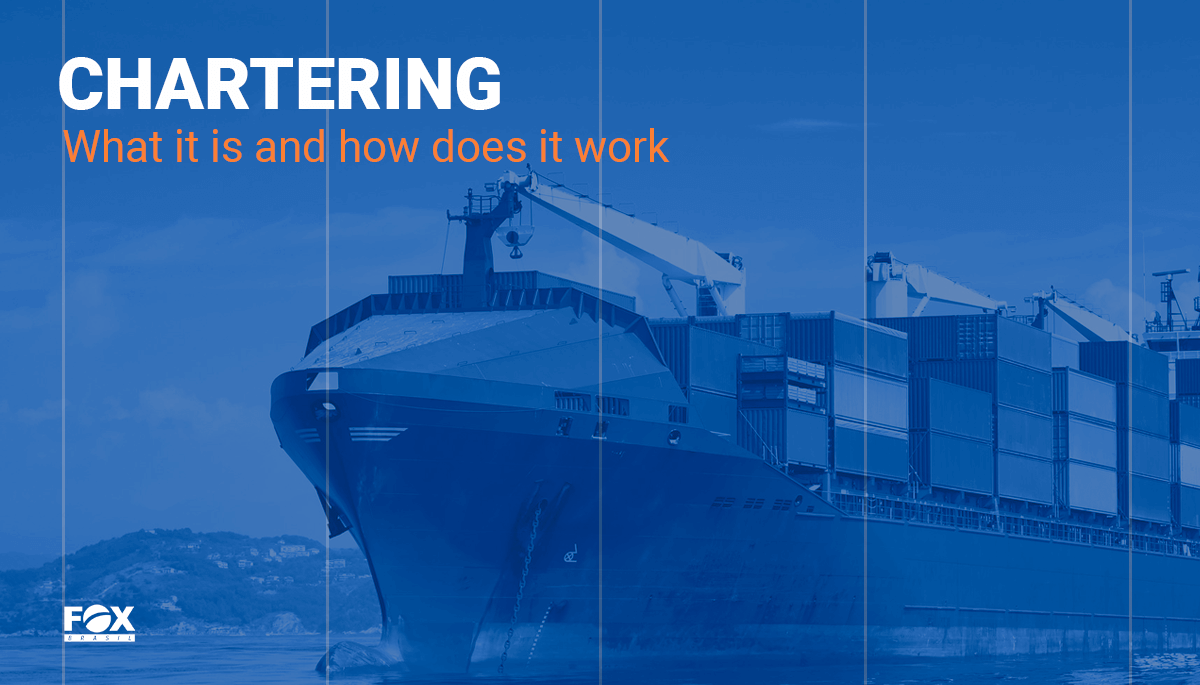Chartering: what is it and how does it work?

FOX Brasil Freight Forwarder
What if you could have an entire ship, all to yourself?
In a nutshell, that is what a chartering service allows individuals with different goals to achieve. Be it to transport cargo or even passengers, there are multiple types of chartering to fit the needs of the renting party.
Want to know more about this maritime practice? Continue reading!
What is chartering?
Chartering is the term used to name the renting of a whole ship, in an agreement between a shipowner and a renting party, in this case known as charterer, intermediated by a freight forwarder or a shipbroker.
The charterer
The charterer is the individual or organization renting the ship. There are many common reasons why a charterer rents a ship, it can be to transport their own cargo or to offer this service to another party, or even to re-rent the ship to someone else for a profit.
In general, the charterer becomes responsible for the integrity of the vessel, its crew, and the cargo carried, but we will get into specifics of the role of the charterer in each type of chartering later on this post.
The shipowner
The shipowner is the individual or organization that owns ships, registered under their name. Sometimes, shipowners have particular shipbrokers that work for them in order to find potential charterers and ease negotiations.
The shipbroker
The shipbroker is the individual who finds suitable vessels for interested charterers or interested charterers for available vessels, it will depend on who they’re working for. They charge a fee for their services, and sometimes can be specialized in a specific type of ship.
It is important to add that, different from a freight forwarder who can also arrange ships for chartering and are responsible for the coordination of the transport operations on behalf of the charterer, a shipbroker is just there as an intermediary between the two main parties, the charterer and the shipowner, and is not responsible for the vessel itself in any way.
The types of charter
There are three main types of charter, each dictating specifics of their contracts that involve the usage of the vessel by the charterer.
- A demise charter, or bareboat charter, is the hiring of a ship in which the charterer is fully responsible for the vessel during the charter period, legally and financially. This type of charter can have years-long contracts, and even end up with the charterer becoming the shipowner after a while, acquiring the ship for themselves in a formal manner.
- A voyage charter, where a ship is rented for a voyage between two ports, with the crew included. In this case, the shipowner is still in full control of the ship, and is simply offering the usage for the charterer, that pays a freight for this service. This type of charter also has a specified period in which the cargo must be unloaded from the ship, called laytime. If laytime is exceeded, the charterer must pay demurrage fees. If not, the shipowner pays despatch to the charterer according to the time saved.
- A time charter, where a ship is rented, with the crew included, for an established period of time in which the charterer is in full control of the vessel, paying for the fuel, the port charges, and the fees for the use of the vessel to the shipowner.